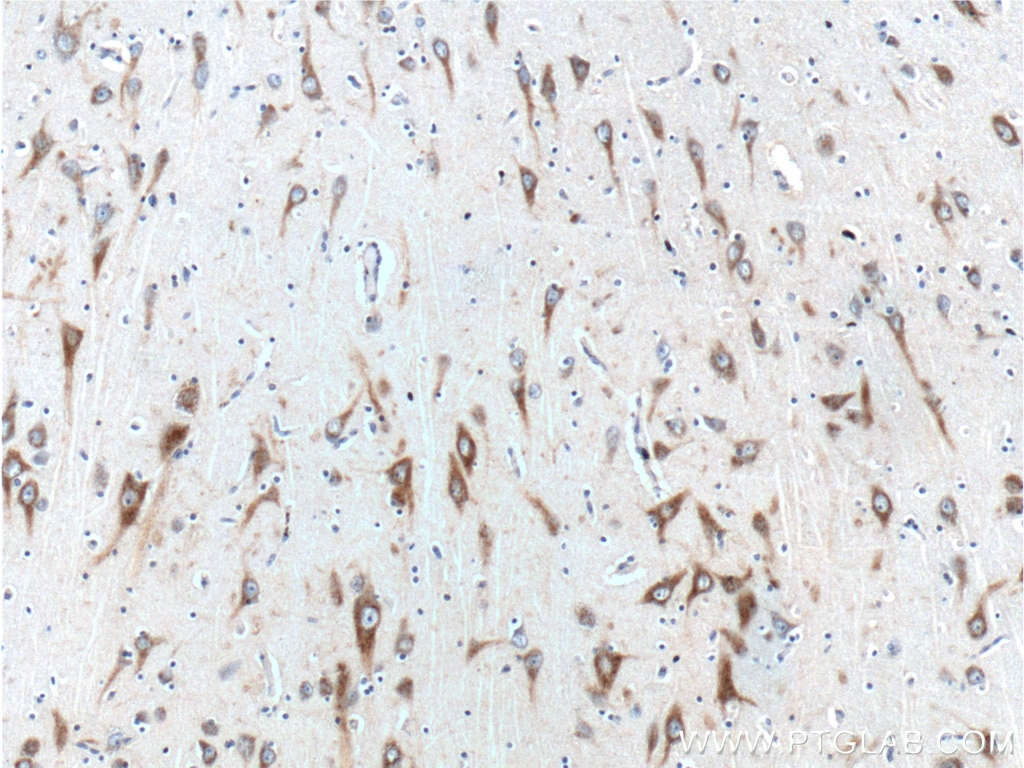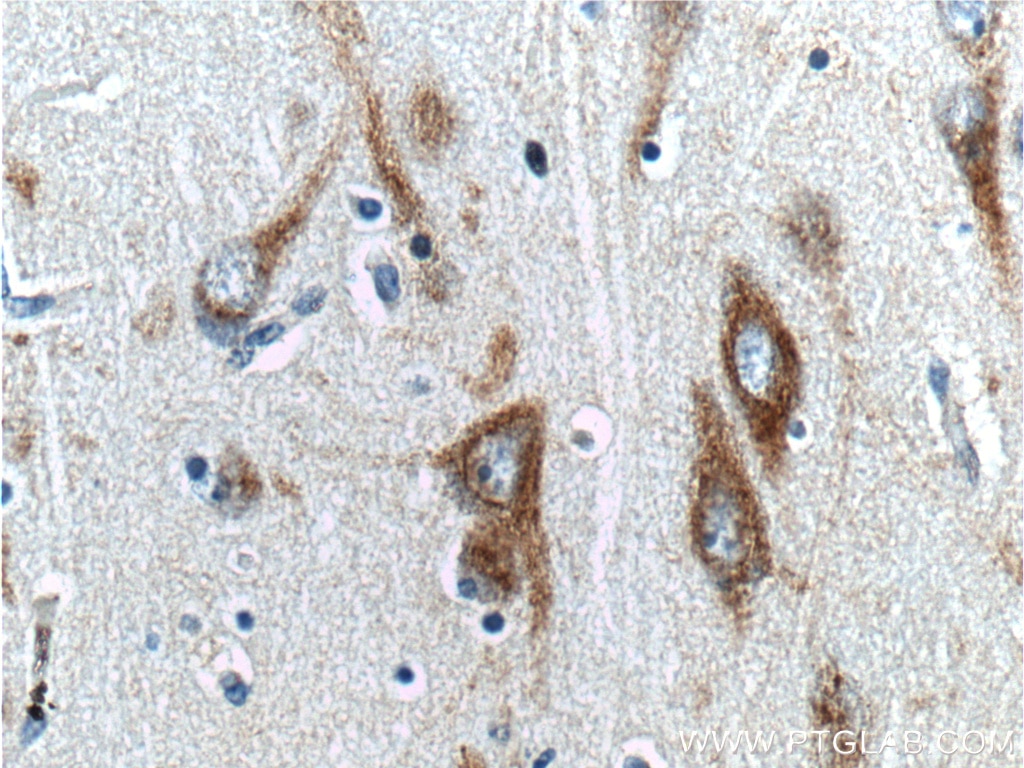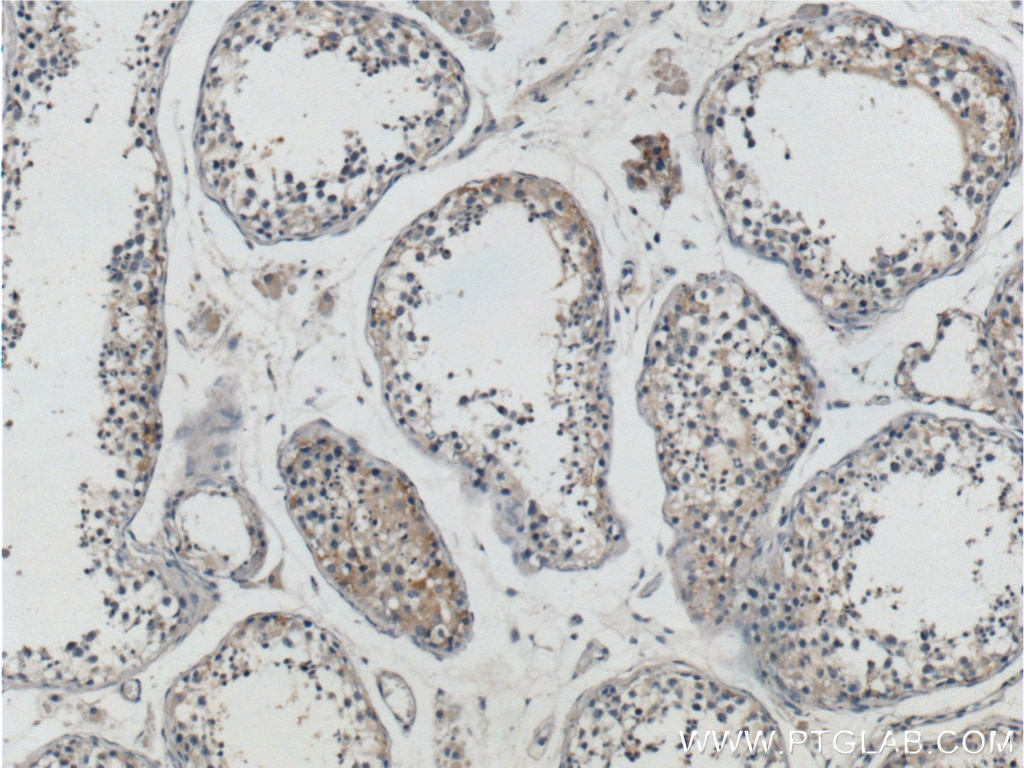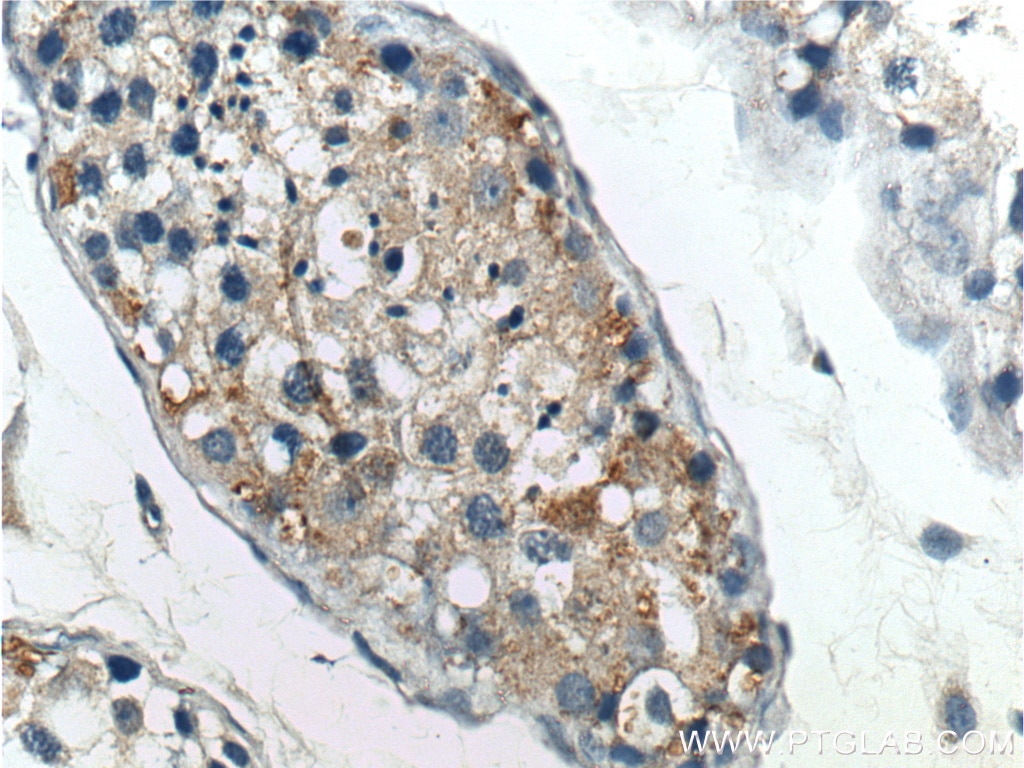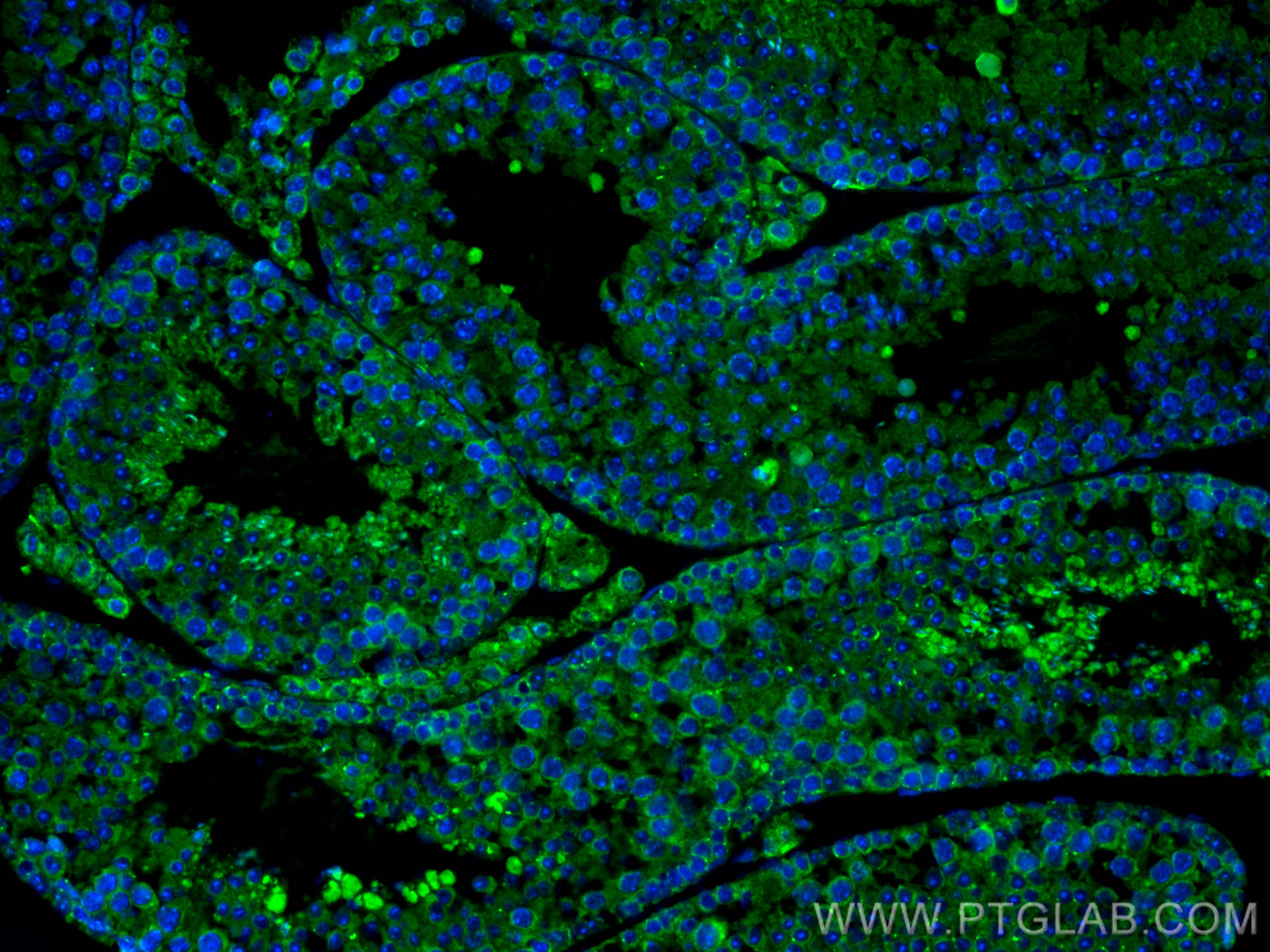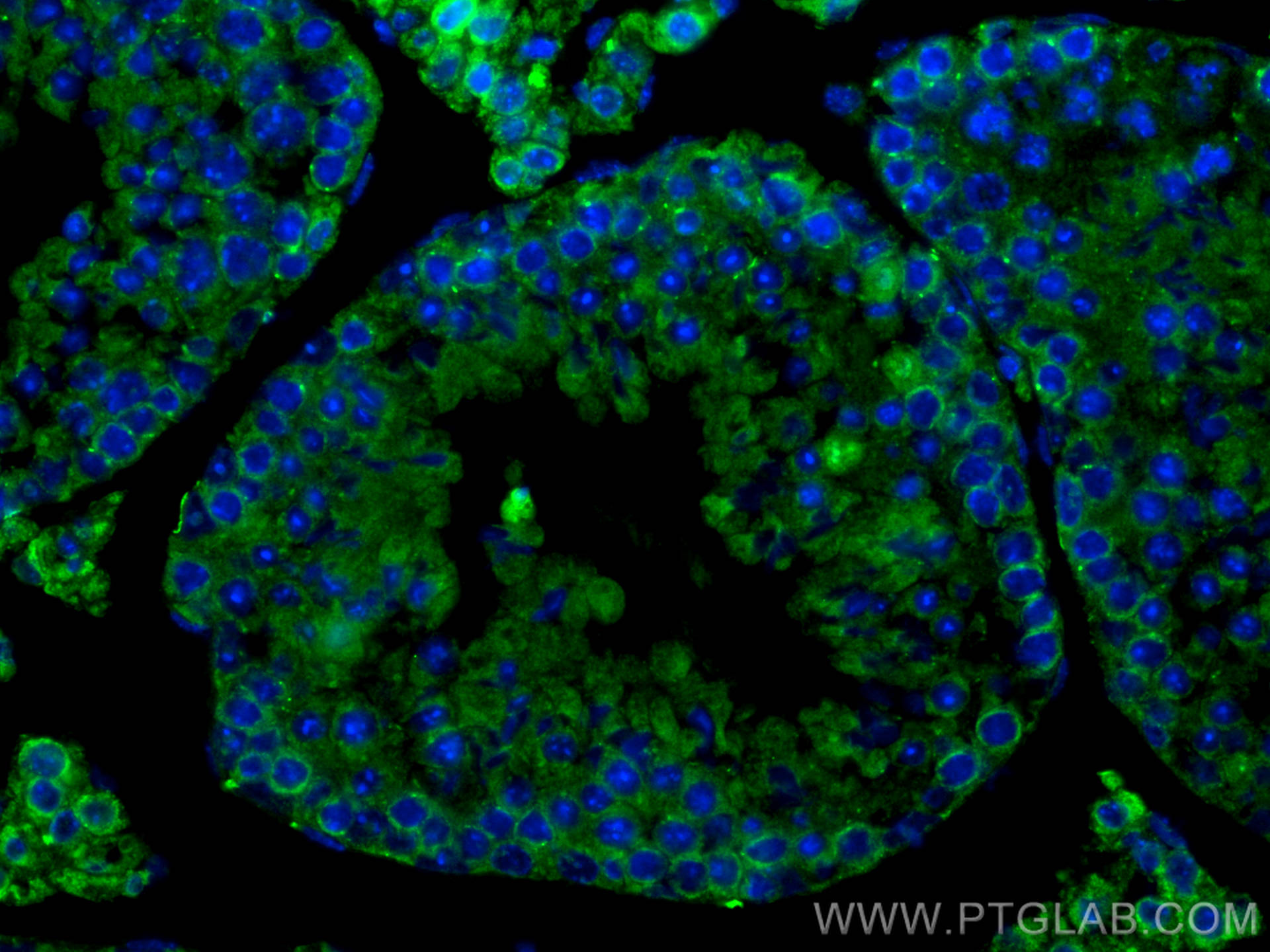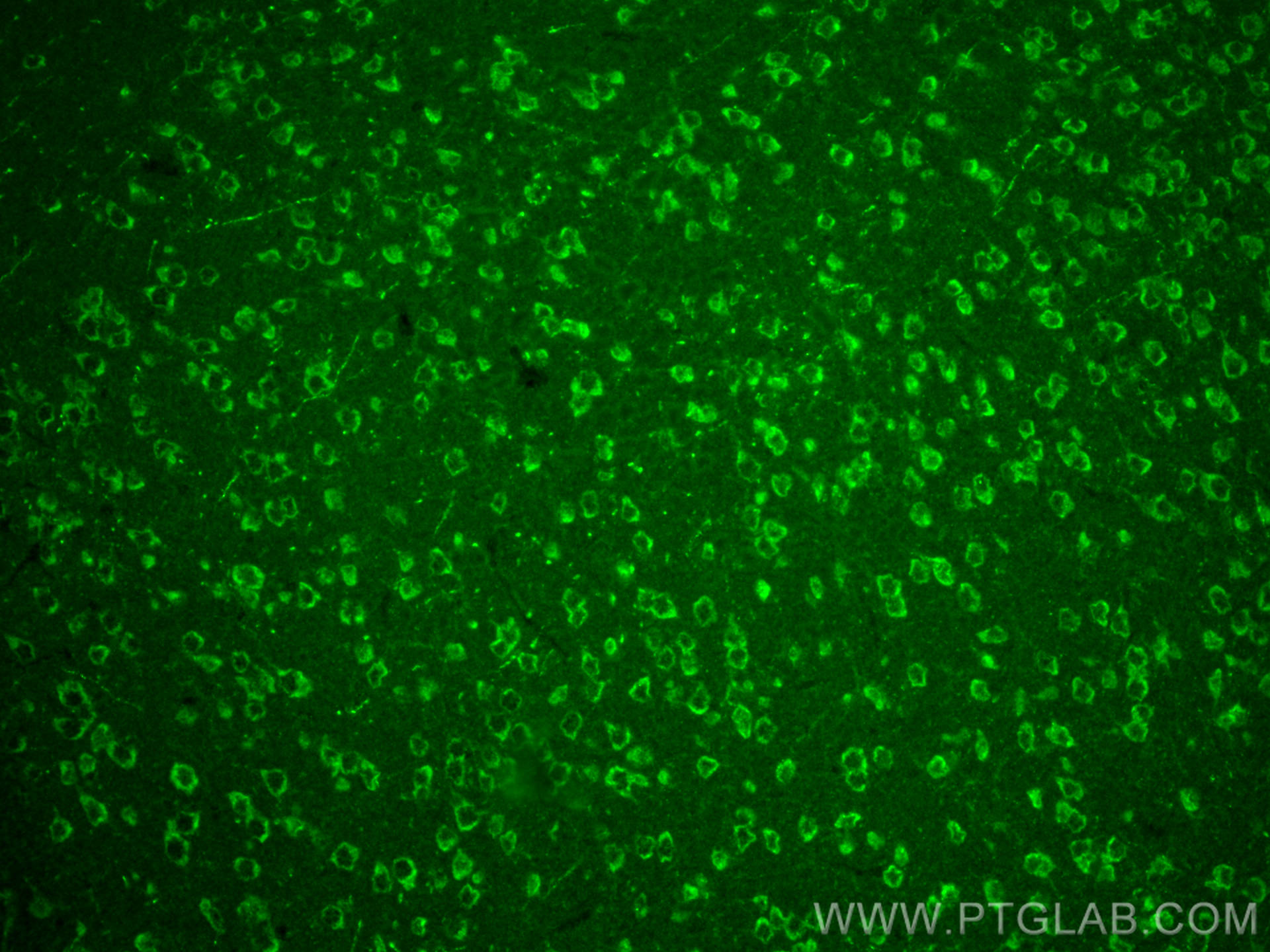Tested Applications
| Positive IHC detected in | human brain tissue, human testis tissue Note: suggested antigen retrieval with TE buffer pH 9.0; (*) Alternatively, antigen retrieval may be performed with citrate buffer pH 6.0 |
| Positive IF-P detected in | mouse testis tissue, mouse brain tissue |
Recommended dilution
| Application | Dilution |
|---|---|
| Immunohistochemistry (IHC) | IHC : 1:50-1:500 |
| Immunofluorescence (IF)-P | IF-P : 1:50-1:500 |
| It is recommended that this reagent should be titrated in each testing system to obtain optimal results. | |
| Sample-dependent, Check data in validation data gallery. | |
Published Applications
| IHC | See 2 publications below |
| IF | See 2 publications below |
Product Information
18419-1-AP targets RXFP1 in IHC, IF-P, ELISA applications and shows reactivity with human, mouse, rat samples.
| Tested Reactivity | human, mouse, rat |
| Cited Reactivity | mouse, rat |
| Host / Isotype | Rabbit / IgG |
| Class | Polyclonal |
| Type | Antibody |
| Immunogen |
CatNo: Ag13098 Product name: Recombinant human RXFP1 protein Source: e coli.-derived, PET28a Tag: 6*His Domain: 24-404 aa of BC112142 Sequence: DVKCSLGYFPCGNITKCLPQLLHCNGVDDCGNQADEDNCGDNNGWSLQFDKYFASYYKMTSQYPFEAETPECLVGSVPVQCLCQGLELDCDETNLRAVPSVSSNVTAMSLQWNLIRKLPPDCFKNYHDLQKLYLQNNKITSISIYAFRGLNSLTKLYLSHNRITFLKPGVFEDLHRLEWLIIEDNHLSRISPPTFYGLNSLILLVLMNNVLTRLPDKPLCQHMPRLHWLDLEGNHIHNLRNLTFISCSNLTVLVMRKNKINHLNENTFAPLQKLDELDLGSNKIENLPPLIFKDLKELSQLNLSYNPIQKIQANQFDYLVKLKSLSLEGIEISNIQQRMFRPLMNLSHIYFKKFQYCGYAPHVRSCKPNTDGISSLENLLA Predict reactive species |
| Full Name | relaxin/insulin-like family peptide receptor 1 |
| Calculated Molecular Weight | 757 aa, 87 kDa |
| GenBank Accession Number | BC112142 |
| Gene Symbol | RXFP1 |
| Gene ID (NCBI) | 59350 |
| RRID | AB_2878543 |
| Conjugate | Unconjugated |
| Form | Liquid |
| Purification Method | Antigen affinity purification |
| UNIPROT ID | Q9HBX9 |
| Storage Buffer | PBS with 0.02% sodium azide and 50% glycerol, pH 7.3. |
| Storage Conditions | Store at -20°C. Stable for one year after shipment. Aliquoting is unnecessary for -20oC storage. 20ul sizes contain 0.1% BSA. |
Protocols
| Product Specific Protocols | |
|---|---|
| IF protocol for RXFP1 antibody 18419-1-AP | Download protocol |
| IHC protocol for RXFP1 antibody 18419-1-AP | Download protocol |
| Standard Protocols | |
|---|---|
| Click here to view our Standard Protocols |
Publications
| Species | Application | Title |
|---|---|---|
Bone Rep Relaxin 2 carried by magnetically directed liposomes accelerates rat midpalatal suture expansion and subsequent new bone formation. | ||
Biomed Chromatogr Pharmacokinetics Integrated With Network Pharmacology to Investigate the Potential Mechanism of Lu-Jiao Fang Inhibited Endothelial-to-Mesenchymal Transition in Pressure Overload-Induced Cardiac Fibrosis | ||
In Vivo BMSCs-EVs Alleviate Pelvic Floor Dysfunction in Mice by Reducing Inflammation and Promoting Tissue Regeneration | ||
Poult Sci Expression of relaxin-3 and its receptors in the hypothalamic-pituitary-ovary axis in layers and broiler breeders |

